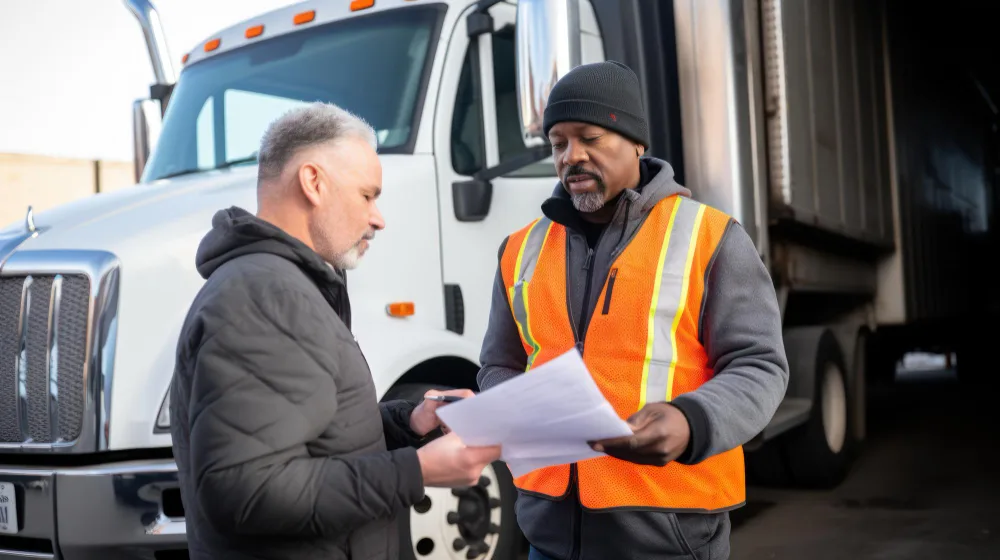
Your logistics drivers face a number of potential safety issues every day. There are the obvious risks like possible road traffic accidents, or theft of their cargo.
But what about those safety issues that don’t immediately come to mind? Medical emergencies, or feelings of isolation and vulnerability. How do you protect your drivers from safety and security threats, and support their wellbeing on the job?
Using Journey monitoring technology allows each driver to be visible and supported on every job.
The route is planned from the outset, and somebody in a control room (either at the depot or outsourced) can monitor the journey to make sure it’s going to plan. This route planning for safety gives you and your drivers peace of mind that they are not alone in their work.
This works particularly well when your drivers are transporting high value goods. You can see exactly where the goods are in transit, from the time they leave the depot, to each stop off point and then to final delivery. Your driver can provide you with regular check-ins to give you and your final customer peace of mind.
By monitoring the journey in this way, you can also make sure that your drivers schedule sufficient rest. Taking regular breaks will keep your drivers safe on the road.
Real-time intelligence for transport gives you and your drivers up-to-date information on anything that might disrupt your driver’s journey. That’s any geographical threat alerts, which include not only travel updates, but updates on the weather, temporary roadworks and congestion charges.
These reports will raise potential threats, like whether or not protestors are likely to disrupt your delivery. This is becoming more common where the companies drivers are delivering to have links with oil production, for example.
A lone worker safety app like MiSentinel SOS can support workers while they’re out on their deliveries. Drivers are able to give quick and easy check-ins at regular intervals to confirm their safety. They also have a readily available panic button for emergencies.
The app is integrated with emergency services and security teams so once an alarm is raised, there’s always a rapid response. With this sort of functionality, you can provide proactive intervention in the case of emergencies or security incidents such as medical emergencies, accidents or security threats.
Your team that monitors and responds to lone workers could be part of your in-house team at the depot. But if you don’t have those resources free, you can outsource that work to an alarm receiving centre, who will review it and respond on your behalf.
Supported with a lone-worker app, drivers feel cared for and looked after while they are out on long journeys. This can help reduce the feelings of isolation and vulnerability and support their overall wellbeing.
Providing your drivers with a security escort will help to ensure supply chain protection, and the safe loading and unloading of vehicles. The security escort can act as a keyholder during deliveries, at the points at which the lorries are vulnerable to attack (at delivery for example). Your keyholder unlocks the building to reduce any risk of unattended vehicles.
The security escort acts as a second pair of eyes during the journey. Drivers need to be focused on driving, and may not be able to be fully aware of other security threats afoot. The security escort can dedicate their awareness to potential threats and deal with risks as they arise.
If you’d like to discuss any of the solutions we’ve mentioned here in this blog, please do get in touch. We’d be happy to help you.